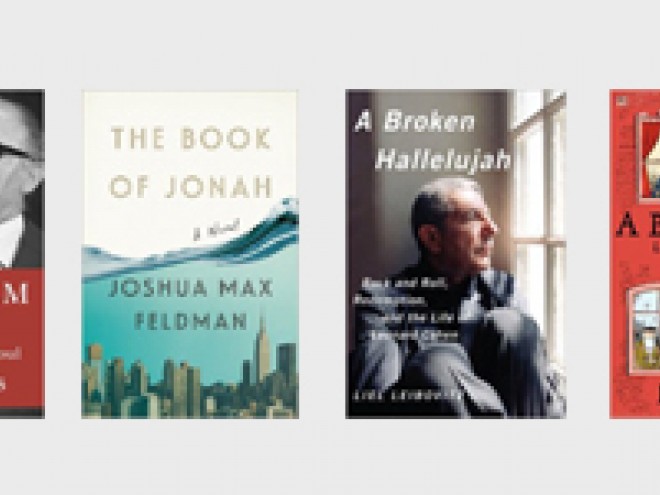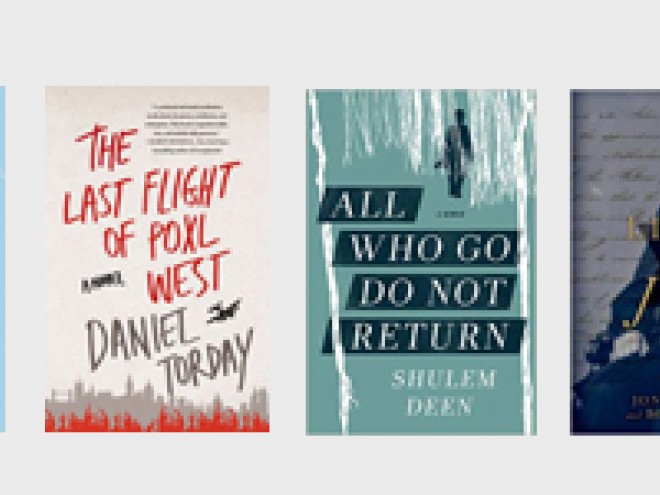Posted by Naomi Firestone-Teeter
 A few weeks ago, Miri Pomerantz Dauber and I had a great conversation with Michelle Haimoff, whose debut novel, These Days Are Ours, will be published in February. We continued the ongoing conversation about what it means to be a “Jewish” author and the difference between a Jewish book and a book that happens to be written by a Jewish author (with Jewish cultural references as the “Jewish” component). The conversation got me thinking back to my very first blog post for JBC, which took a look at Joanna Smith Rakoff’s A Fortunate Age and Keith Gessen’s All the Sad Young Literary Men, particularly:
A few weeks ago, Miri Pomerantz Dauber and I had a great conversation with Michelle Haimoff, whose debut novel, These Days Are Ours, will be published in February. We continued the ongoing conversation about what it means to be a “Jewish” author and the difference between a Jewish book and a book that happens to be written by a Jewish author (with Jewish cultural references as the “Jewish” component). The conversation got me thinking back to my very first blog post for JBC, which took a look at Joanna Smith Rakoff’s A Fortunate Age and Keith Gessen’s All the Sad Young Literary Men, particularly:
For several of Rakoff’s characters, their Jewish heritage becomes a part of the backdrop – their Judaism is not front and center – but it’s a part of their foundation, making brief appearances throughout the book. None of the characters are particularly religious (although one does end up exploring Israel out of the boundaries of the narrative), and none comment on their Judaism as a negative factor within their life (or particularly positive) – it’s just a fact. They don’t wear it on their sleeve, but it’s there on the first page of the book, and it seeps back in throughout the course of the narrative.
In 2007, we spent a lot of time thinking about questions surrounding Jewish identity and contemporary Jewish literature and even hosted a panel at the Strand as a part of the oy!hoo festival called You Can Write, But You Can’t Hide: The Subtle Ubiquity of Jewish Identity:
Even if you haven’t noticed it, it’s there in every sentence you write. It’s there to make you feel guilty, there to make you feel proud, there to make you remember who and why you are. It’s your Jewish identity, and it’s as big as the entire world, injecting itself into everything. But just what is Jewish identity? And how does it affect Jewish writers? And what’s to become of it in an exceedingly secular world? Join an intrepid group of authors as they grapple with these questions while still trying to make their mothers proud.
These are the questions that particularly drive me, as a secular Jew living in New York City who is in the business of Jewish literature (and ideas, history, culture, etc.). With each new book that tackles the subject, I revisit the ideas I considered in that first blog post and the questions we sought to address at the oy!hoo and consider my own life choices and where I want to go from here. I eagerly anticipate the 2012 crop of books that are concerned with similar questions.
With that out of my system…your final JBC Bookshelf before I pack up and head to Ireland for a week! See you in January…
Breaking and Entering: A NovelFlatscreen: A Novel
Check out The Faster Times, Adam is a founding editor
New American Haggadah
Read reviews of Safran Foer’s Eating Animals, Everything is Illuminated, and Incredibly Loud and Incredibly Close on the JBC website
Crossing the Borders of Time: A True Story of War, Exile, and a Love Reclaimed
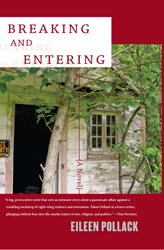
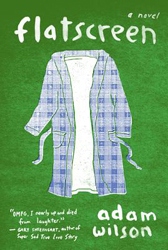

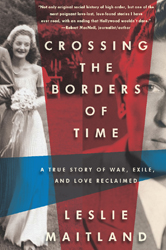
Originally from Lancaster, Pennsylvania, Naomi is the CEO of Jewish Book Council. She graduated from Emory University with degrees in English and Art History and, in addition, studied at University College London. Prior to her role as executive director and now CEO, Naomi served as the founding editor of the JBC website and blog and managing editor of Jewish Book World. In addition, she has overseen JBC’s digital initiatives, and also developed the JBC’s Visiting Scribe series and Unpacking the Book: Jewish Writers in Conversation.
